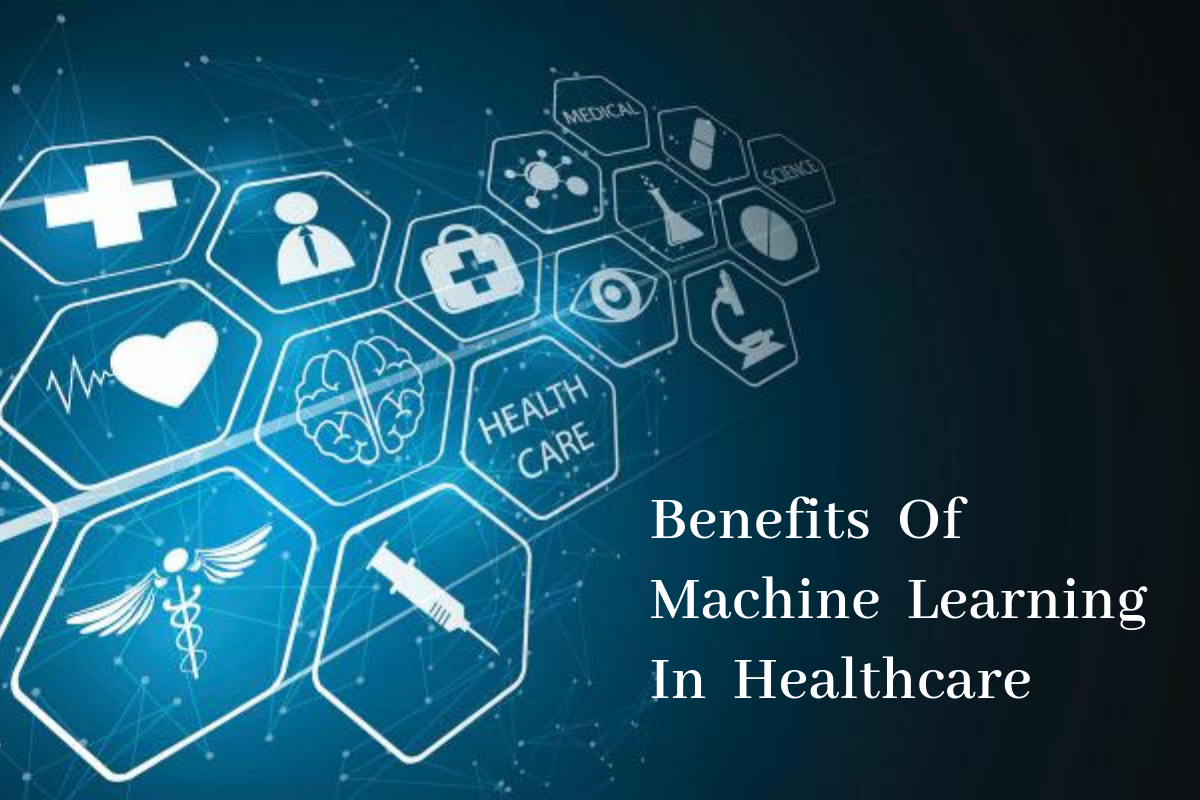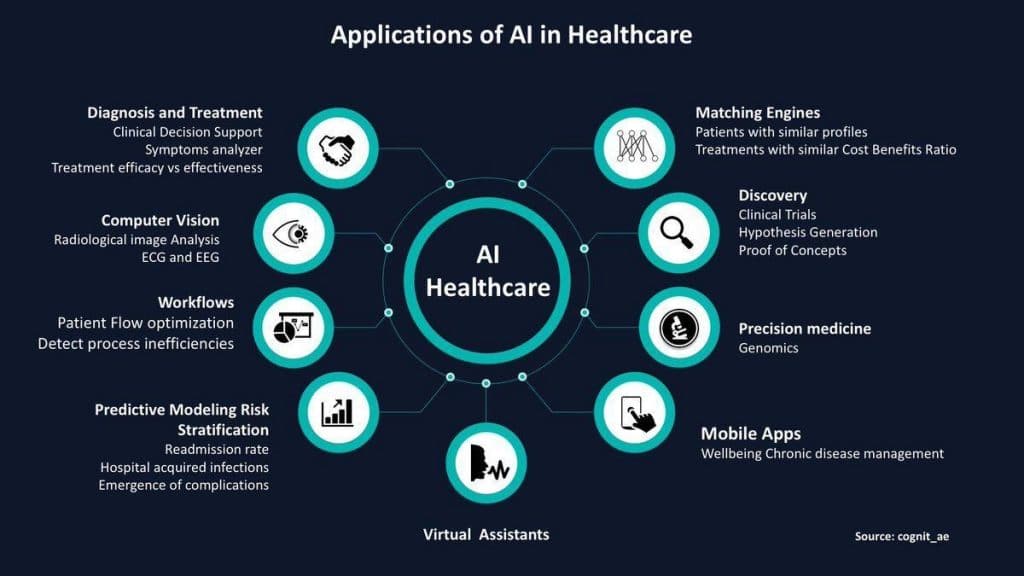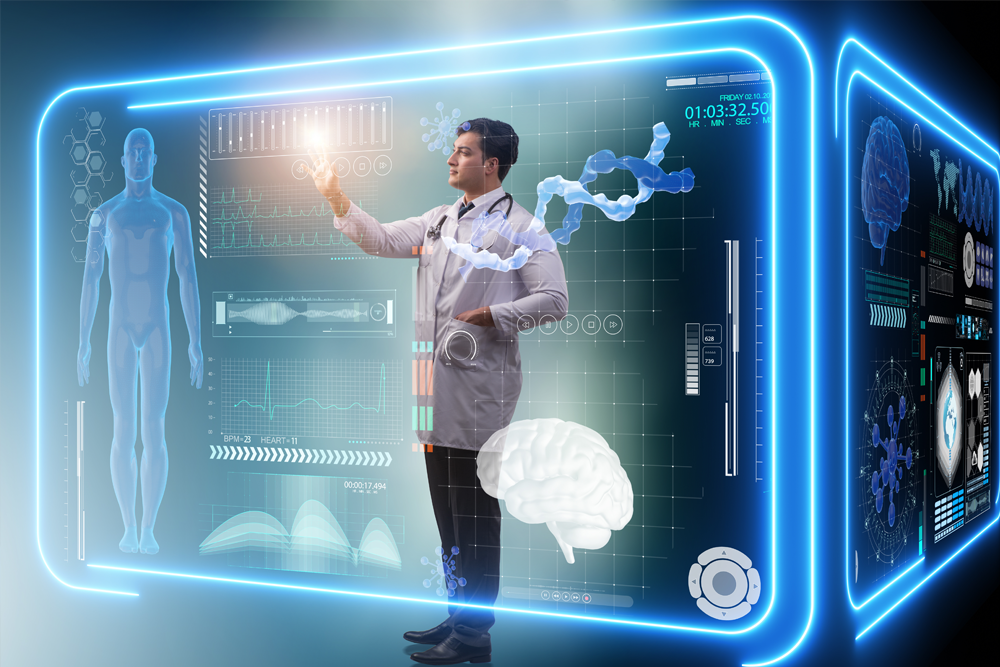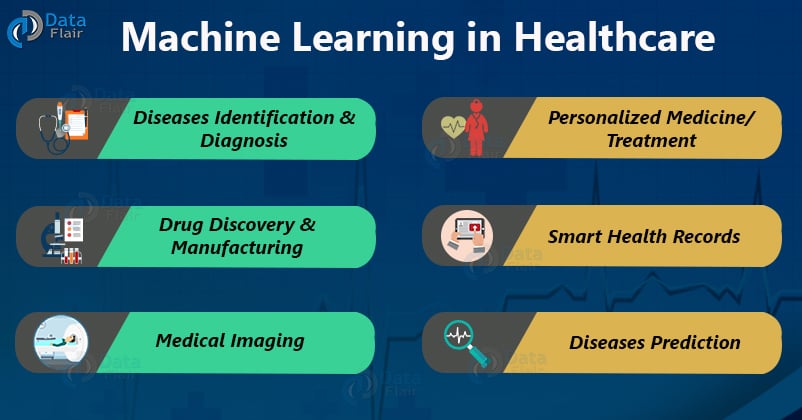
Machine Learning for Personalized Healthcare Plans
The healthcare industry is undergoing a major transformation, driven by the rapid adoption of new technologies. Machine learning (ML) is one of the most disruptive technologies in healthcare, and it is being used to create personalized healthcare plans that are tailored to each individual patient's needs.
Personalized healthcare plans are based on the patient's individual medical history, genetic information, and lifestyle factors. ML algorithms can be used to analyze this data and identify patterns that can help predict future health risks and recommend personalized treatment plans.

Benefits of Personalized Healthcare Plans
Personalized healthcare plans offer a number of benefits over traditional, one-size-fits-all approaches to care. These benefits include:
- Improved patient outcomes: Personalized healthcare plans are more likely to lead to better patient outcomes, because they are tailored to the specific needs of each patient. For example, a patient with a history of heart disease may be prescribed a different medication than a patient with a history of diabetes.
- Increased patient satisfaction: Patients who receive personalized care are more likely to be satisfied with their care, because they feel like they are getting the care that is right for them. This can lead to increased patient loyalty and improved adherence to treatment plans.
- Reduced healthcare costs: Personalized healthcare plans can help to reduce healthcare costs by preventing unnecessary treatments and by identifying the most effective treatments for each patient. For example, a patient who is at high risk for developing a certain type of cancer may be able to avoid the cancer by making lifestyle changes, such as eating a healthy diet and exercising regularly.

Challenges to Implementing Personalized Healthcare Plans
There are a number of challenges to implementing personalized healthcare plans, including:
- Data collection: In order to create personalized healthcare plans, it is necessary to collect a large amount of data about each patient. This data can include medical records, genetic information, and lifestyle factors. Collecting this data can be a challenge, especially for patients who do not have access to electronic medical records.
- Data analysis: Once the data has been collected, it must be analyzed in order to identify patterns that can be used to create personalized healthcare plans. This analysis can be complex and time-consuming, and it requires specialized skills and expertise.
- Regulation: The healthcare industry is heavily regulated, and there are a number of regulations that must be considered when implementing personalized healthcare plans. These regulations include patient privacy laws, data security laws, and informed consent laws.

The Future of Personalized Healthcare Plans
Despite the challenges, the potential benefits of personalized healthcare plans are significant. As the healthcare industry continues to evolve, we can expect to see more and more personalized healthcare plans being implemented. These plans have the potential to revolutionize the way that healthcare is delivered, and they could lead to better patient outcomes, increased patient satisfaction, and reduced healthcare costs.
How Machine Learning is Used for Personalized Healthcare

Machine learning (ML) is a type of artificial intelligence (AI) that allows computers to learn without being explicitly programmed. ML algorithms are trained on data, and they can then be used to make predictions or recommendations. In the healthcare industry, ML is being used to create personalized healthcare plans that are tailored to each individual patient's needs.
There are a number of ways that ML can be used for personalized healthcare. For example, ML algorithms can be used to:
- Identify patients who are at high risk for certain diseases. This information can be used to target preventive care interventions to those who need them most.
- Predict the effectiveness of different treatments for each patient. This information can help doctors make more informed decisions about which treatments to recommend.
- Personalize patient education materials. ML algorithms can be used to generate personalized educational materials that are tailored to each patient's specific needs and learning style.

ML is still a relatively new technology, but it has the potential to revolutionize the way that healthcare is delivered. By providing doctors with more accurate information about their patients, ML can help to improve patient outcomes and reduce healthcare costs.
Examples of Personalized Healthcare Plans
There are a number of different ways that ML can be used to create personalized healthcare plans. Here are a few examples:

- A hospital in California is using ML to identify patients who are at high risk for heart failure. The hospital uses a patient's medical history, genetic information, and lifestyle factors to create a personalized risk score. Patients who are at high risk are then offered preventive care interventions, such as lifestyle changes and medication, to help reduce their risk of developing heart failure.
- A pharmaceutical company is using ML to predict the effectiveness of different treatments for cancer. The company uses a patient's tumor type, genetic profile, and other factors to create a personalized treatment plan. This information helps doctors choose the most effective treatment for each patient, which can improve patient outcomes and reduce the risk of side
Post a Comment